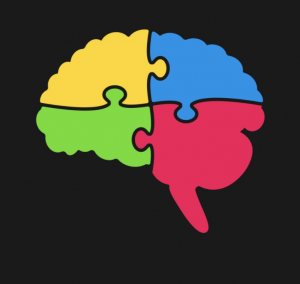Mental rotation, working memory, episodic memory, processing speed, task switching. You don’t really that you are doing this but but it’s important to solve a puzzle.

Why do we found puzzles so satisfying?
Puzzles activate up to 8 different cognitive functions at the same time. It’s such a focus task that it can relax also your mind. It’s something like meditation, mindfulness training. In general people say they feel very relaxed after solving a puzzle and this relaxation is really important for psychological health.
Although some puzzles seem extremely simple, they set off a complex chain of events in our brains. The first thing which is happening when you see a puzzle is that the information gets into your eyes and goes through to the occipital cortex. From there are two pathways. One pathway goes into venture direction and the other one is called the dorsal pathway. They are processing different information. On the ventral pathway is processed the image of the puzzle and on the dorsal pathway you remember the information related to that puzzle section. And those information like “what” or “where” somehow the brain need to integrate this information to make use of it again. And this is like a really difficult task for the brain to integrate all of this information properly. And you need this integration to find the right solution of the puzzle.
Cognitively challenging activities like puzzles are also associated with long-term mental health benefits, such as a lower risk of Alzheimer’s or dementia.
There are many leisure activities with which you can target brain function. It’s important to do many different leisure activities and not just doing one again and again. If you think about training the brain, it’s most important to have variations tasks. Puzzling is just one task next to other tasks. It might be probably better than watching television, because watching television is very inactive.